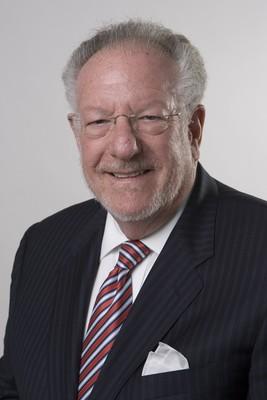Mayor rides roughshod over roads, rails

The self-styled “happiest mayor in the world” wasn’t so happy Thursday, with roads and rails — or the lack thereof — raising his dander.
Mayor Oscar Goodman ripped both the state’s highway funding plan and never-ending studies of future train service to Los Angeles, calling road funds inadequate and the rail plan a mirage.
Without naming names, a fiery Goodman said at his morning mayoral news conference that the legislation producing $1 billion for new road work was “irresponsible” and “gutless.”
The cash infusion is far short of the roughly $5 billion state transportation leaders say is necessary to cover a backlog of road improvements that engineers claim is necessary to head off debilitating gridlock.
Earlier this month, Gov. Jim Gibbons said he believes the existing funding is enough to get the state through until the Legislature meets next in 2009, and some legislative leaders said a more thorough solution would have to be found at that time.
Goodman said he avoided talking about the Legislature while it was in session because “I had nothing good to say about the process. … I thought the process stunk.”
Goodman also was unhappy with the funding plan’s diversion of existing tax revenue — now going to the Las Vegas Convention and Visitors Authority, local governments and rental car companies — instead of finding new tax streams.
“I don’t know how you build roads by robbing Peter to pay Paul, without something breaking,” he said.
When asked about the governor’s performance, Goodman said: “I think the man kept his word not to raise taxes. That’s not necessarily a good thing.”
Because he found the state’s plan inadequate, Goodman said he directed Jacob Snow, general manager of the Regional Transportation Commission, to put an item on an upcoming agenda to come up with solutions to the county’s transportation problem.
“I think responsible people need to suck it up and make tough decisions,” Goodman said.
He would not identify what solutions the commission could potentially come up with.
But the commission may be hard-pressed to find new funding sources on its own. Its own existing tax revenues are largely committed to underwriting construction of the Las Vegas Beltway, and under state law it can’t institute new taxes without legislative approval.
Earlier in the day, Goodman told the commission’s board, of which he is a member, that he was skeptical that the commission’s latest feasibility study on restoring rail service to Los Angeles would end up any different than earlier studies, which failed to produce a passenger rail line.
Las Vegas has lacked intercity rail service since Amtrak canceled its “Desert Wind” line to Los Angeles 10 years ago.
“Everybody knows we need train service to Los Angeles. Nothing ever happens. It’s a fact,” Goodman said.
Clark County Commissioner Bruce Woodbury, who chairs the transportation commission board, said it wasn’t a lack of interest that doomed earlier plans.
“I suspect that, like most things like that, it’s a matter of money,” Woodbury said.
The latest study claims such a rail line is feasible, though it would require a multimillion- dollar annual subsidy and at least $1 billion in track repairs. The rail plan has no financial backing at this point.
The study claims that 34 round trips a week between Las Vegas and Los Angeles could draw up to 381,000 riders annually, paying one-way fares of as much as $85. But the service would require an annual subsidy of up to $15 million.
The study is not complete. Consultants are looking to identify funding sources.
The plan, which would use conventional trains that could travel between Las Vegas and Los Angeles in five to six hours, is one of three competing California-bound rail plans. The other plans involve high-speed trains, but those proposals either fail to connect directly to Los Angeles or would cost billions of dollars to develop. Neither is fully funded.












